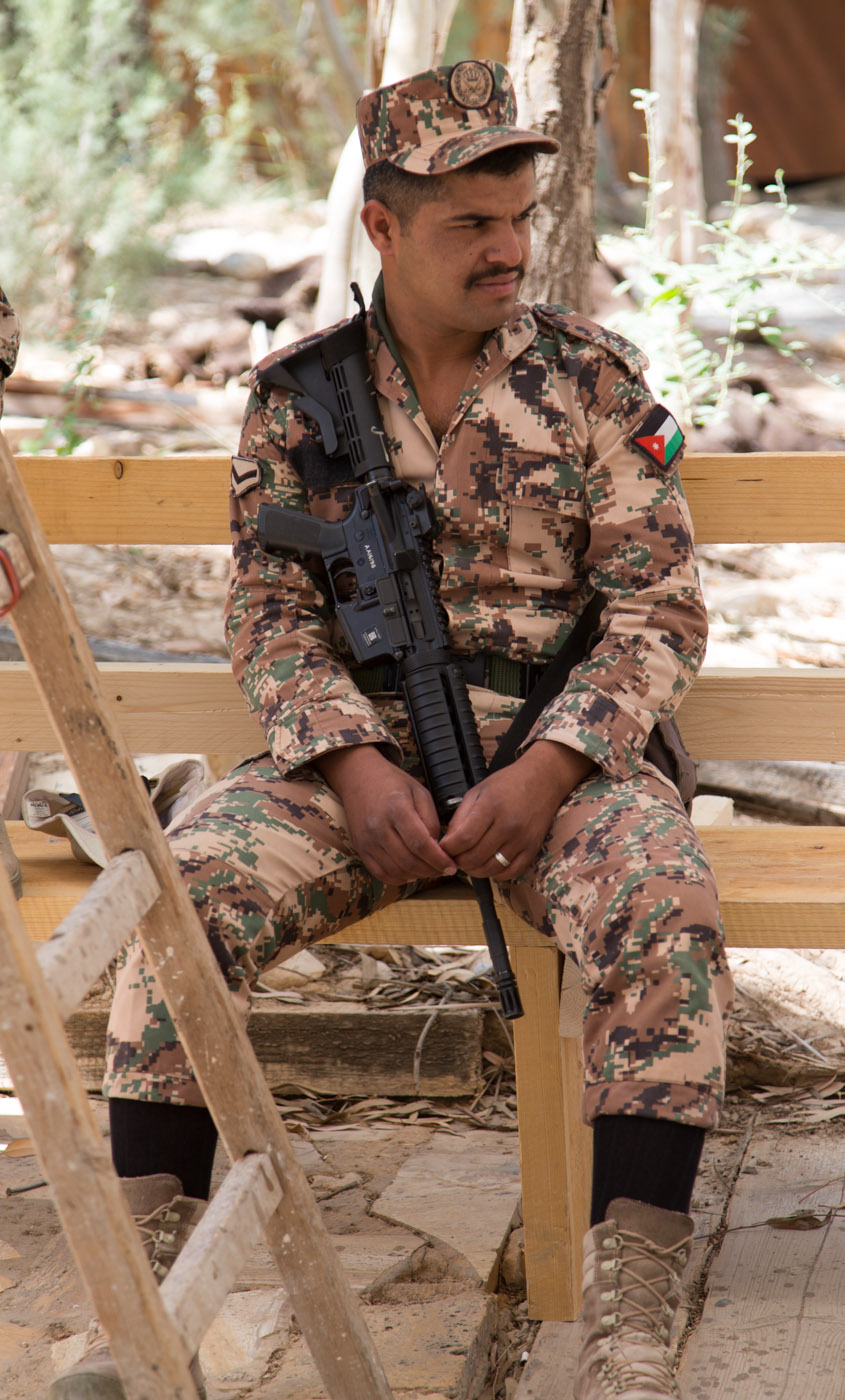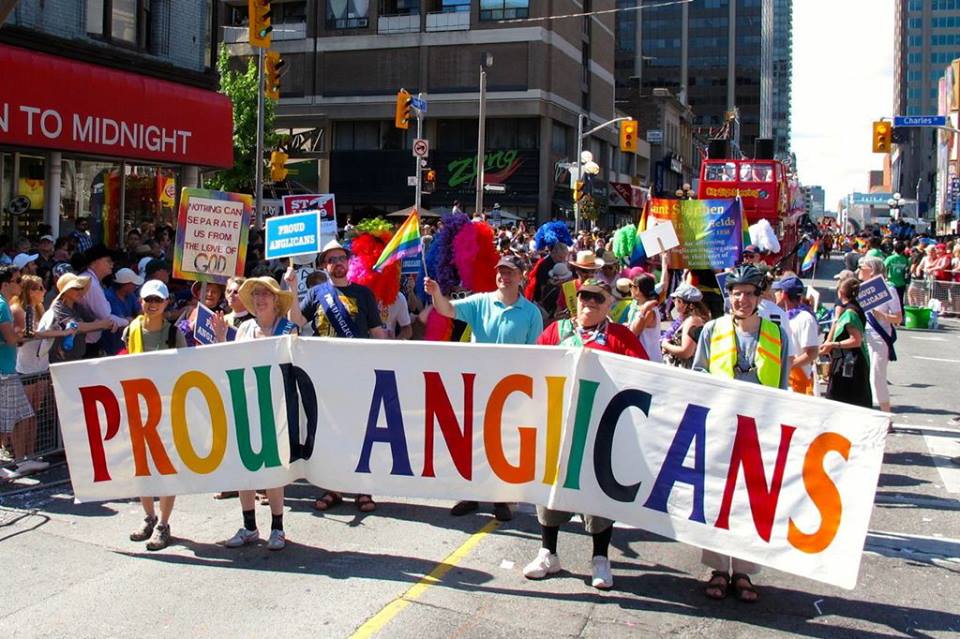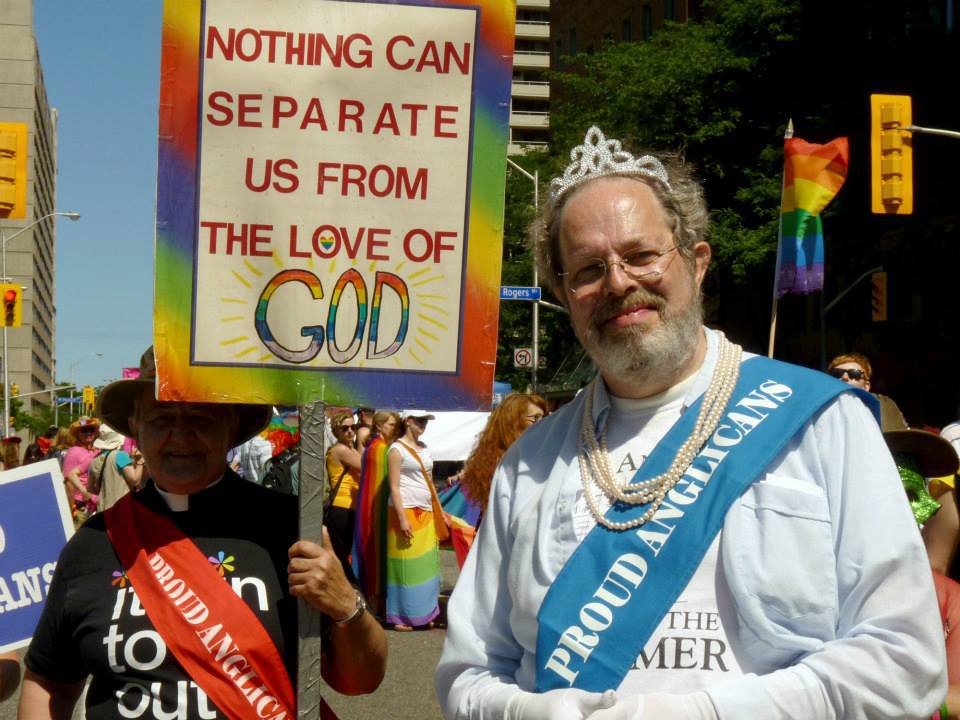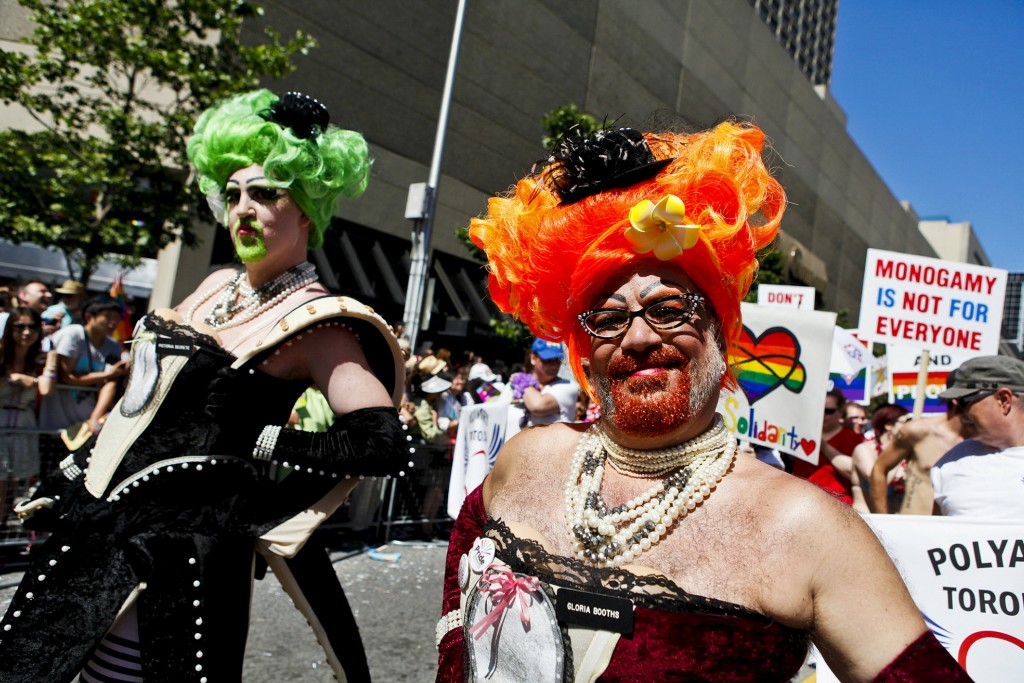The Anglican Church of Canada holds its general synod every three years.
Resolution C003 is a motion for the 2016 synod requesting a change to the marriage canon to include the marrying of same-sex couples. Eleven dioceses – New Westminster, Ottawa, Huron, Niagara, Toronto, Montreal, Nova Scotia and Prince Edward Island, Edmonton, Rupert’s Land, Quebec and British Columbia – already offer the blessing of same-sex unions. All offer liturgies for this blessing and all are careful to point out that the liturgies are for the purpose of blessing not marriage itself.
The cynical among us might question whether there is any significant difference between the two and wonder at the depths of hypocrisy to which these dioceses are prepared to stoop in order to deceive gullible congregants: after all, if a church is willing to bless a same sex-marriage why would it refuse to conduct the marriage? The answer lies in how Anglicans effect change: gradually. A rector who wishes to move a piano from one side of the church to the other does it an inch at a time; it may take a year but no one notices.
There can be little doubt that the Anglican Anglican Church of Canada will end up marrying same sex couples. I for one will welcome it; at least it will be a forthright and undeniable capitulation to the Zeitgeist – stupid and flagitious, perhaps, but with less circuitous guile.
Take note, conservative Anglican frogs determined to remain in the Anglican Church of Canada come what may: the water is almost boiling.
From here:
Resolution C003
Subject: Preparation of motion to change Canon XXI on Marriage; Direction to COGS
Moved by: Ms. Michelle Bull, Diocese of Nova Scotia and PEI
Seconded by: Ms. Jennifer Warren, Diocese of Nova Scotia and PEI
Be it resolved that this General Synod
direct the Council of General Synod to prepare and present a motion at General Synod 2016 to change Canon XXI on Marriage to allow the marriage of same sex couples in the same way as opposite sex couples, and that this motion should include a conscience clause so that no member of the clergy, bishop, congregation or diocese should be constrained to participate in such marriages against the dictates of their conscience.
Source: Member
Submitted by: Ms. Michelle Bull, Diocese of Nova Scotia and PEI
Does this motion contain within it any financial implications? Yes No X
If yes, has the General Synod Expenditures Committee considered the implications? Yes No
EXPLANATORY NOTE/BACKGROUND
It has been 6 years since General synod last debated this issue. Since then, some dioceses have proceeded in a manner they deemed necessary to meet the local pastoral and other needs with respect to the blessing of same sex civil marriages. It has been over 10 years since such civil marriages were legal in Canada. The general public has become much more accepting of same sex unions since we last discussed it. This is also true of the church, though not, of course, universally so.
It seems like a good idea to ask COGS to draft this motion, so that it will be done correctly and with the benefit of appropriate legal and theological advice as to wording, so that the motion will do all and only what we wish it to.
We believe that it is necessary that there be a conscience clause so that anyone who is not in favour of same sex marriages will not be constrained to participate in them. It is not our intention to force everyone to conform in this matter, but only to allow those who wish to allow same sex marriage in the church to go ahead.
PROCEDURE FOR ADOPTION (G)
In the normal course, an ordinary motion must be passed by a majority of the Order of Bishops, and by a majority of the Orders of Clergy and Laity voting together.
Six members of General Synod may, prior to the question being put, require a vote by Orders, with a majority of each Order being necessary to pass.
If a question passes on a Vote by Orders, any six members (two from each of three different dioceses) may require a vote to be taken by dioceses. A motion passes if a majority of dioceses (or a tie) vote in favour.
Source: Section 5 of the Declaration of Principles and sections 18, 19 and 20 of the Rules of Order and Procedure
Note: If Resolution A030 is given second reading, the required majority will be all Orders voting together.
Like this:
Like Loading...










 The world’s first religious vending machine has been installed in a church to allow worshippers to buy holy accessories before attending a service.
The world’s first religious vending machine has been installed in a church to allow worshippers to buy holy accessories before attending a service.